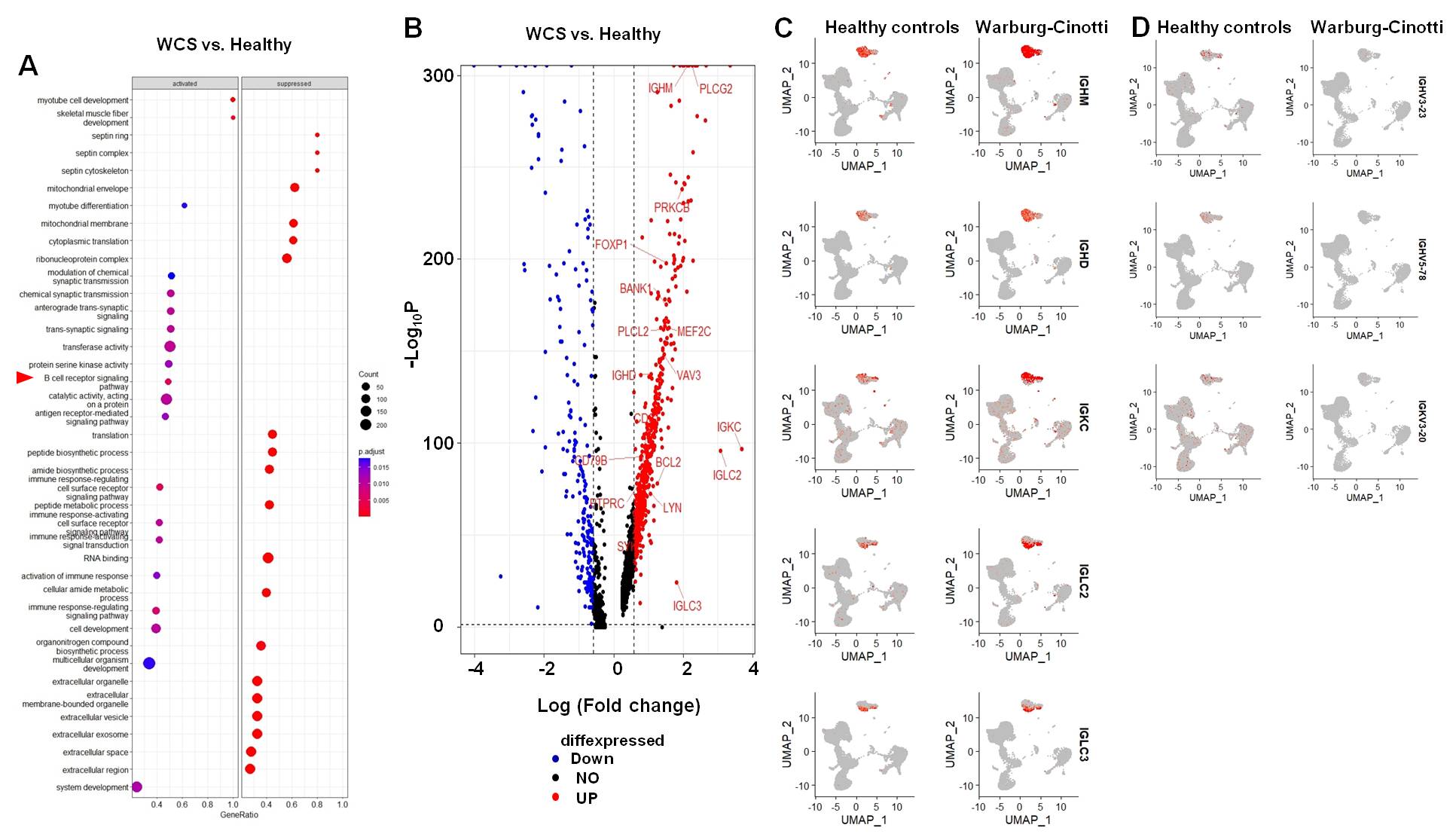Session Information
Date: Tuesday, October 28, 2025
Title: (2015–2051) Miscellaneous Rheumatic & Inflammatory Diseases Poster III
Session Type: Poster Session C
Session Time: 10:30AM-12:30PM
Background/Purpose: Warburg-Cinotti syndrome (WCS) is a rare connective tissue disorder caused by activating mutations in the DDR2 gene, characterized by progressive corneal neovascularization, keloid-like plaques, and acro-osteolysis. The mechanisms underlying these clinical features remain poorly understood.
Methods: We investigated a family with two WCS patients harboring the DDR2 c.2219A >G (p.Tyr740Cys) variant, a 25-year-old son and his 61-year-old father. Using whole-exome sequencing, single-cell RNA sequencing (scRNA-seq) of skin and peripheral blood mononuclear cells (PBMCs), and protein-level validation, we analyzed the impact of DDR2 activation on fibroblast and immune cells.
Results: Histologic and immunochemical analysis revealed extensive dermal fibrosis and increased smooth muscle actin (SMA)-positive myofibroblasts in WCS skin lesions. scRNA-seq analysis of keloid and normal scar datasets supported the role of DDR2 in promoting fibroblast-to-myofibroblast differentiation. PBMCs analysis from WCS patients showed an expansion of immature/transitional B cells with upregulated PLCG2, PRKCB, and IL7R, along with enhanced B cell receptor (BCR) signaling (Figures 1 and 2). These expanded immature B cells exhibited increased antibody production but reduced diversity of the antibody repertoire, particularly in the older patient. Serum analysis confirmed elevated IgG and free light chain levels. Immunohistochemistry demonstrated increased infiltration of CD68+ macrophages and CD79A+ B cells, with IgG deposition in WCS skin.
Conclusion: Our findings demonstrate that constitutive DDR2 auto-phosphorylation promotes myofibroblast differentiation and expansion of immature B cells, leading to excessive fibrosis and aberrant antibody production. This study advances the understanding of WCS pathogenesis and suggests potential therapeutic targets for its fibrotic and immune related manifestations.
To cite this abstract in AMA style:
LEE S, Lee Y. DDR2 auto-phosphorylation in patients with Warburg-Cinotti syndrome promotes differentiation of fibroblasts into myofibroblasts and expansion of immature B cells with antibody production. [abstract]. Arthritis Rheumatol. 2025; 77 (suppl 9). https://acrabstracts.org/abstract/ddr2-auto-phosphorylation-in-patients-with-warburg-cinotti-syndrome-promotes-differentiation-of-fibroblasts-into-myofibroblasts-and-expansion-of-immature-b-cells-with-antibody-production/. Accessed .« Back to ACR Convergence 2025
ACR Meeting Abstracts - https://acrabstracts.org/abstract/ddr2-auto-phosphorylation-in-patients-with-warburg-cinotti-syndrome-promotes-differentiation-of-fibroblasts-into-myofibroblasts-and-expansion-of-immature-b-cells-with-antibody-production/


.jpg)